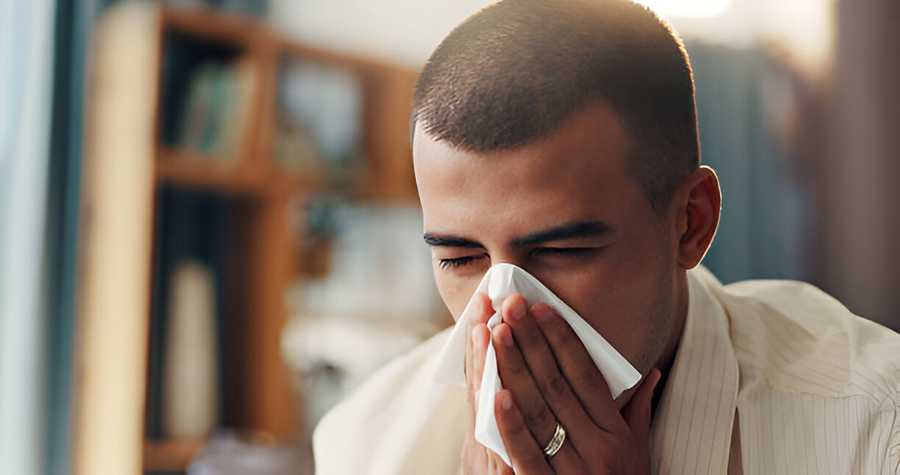Sinus Infection Is Bacterial or Viral
Posted on 17th June 2025

Sinus infections are common and can make you feel quite unwell. They happen when the spaces inside your face, called sinuses, become swollen and filled with mucus. This can lead to pain, pressure, and difficulty breathing through your nose. But how do you know if it’s caused by a virus or by bacteria?
Understanding the difference helps you choose the right treatment and avoid taking antibiotics when they’re not needed. Let’s break it down simply.
What Is a Sinus Infection?
A sinus infection, or sinusitis, happens when your sinuses become blocked. When this happens, mucus can’t drain properly. This creates a perfect place for germs to grow.
Sinus infections are usually caused by:
- Viruses (like the common cold)
- Bacteria
Fungal sinus infections are rare and usually affect people with weak immune systems.
What Happens If You Let a Sinus Infection Go Untreated?
Common Symptoms of a Sinus Infection
Whether your infection is viral or bacterial, the symptoms may feel very similar at first. Here are signs you might notice:
- Blocked or stuffy nose
- Yellow or green mucus from the nose
- Pressure around the eyes, cheeks, or forehead
- Headache or facial pain
- Loss of smell or taste
- Sore throat or cough
- Tiredness or low energy
- Bad breath
These symptoms are the body's way of fighting off infection.
Signs It’s Likely Viral
Viral sinus infections are much more common than bacterial ones. They usually happen after a cold or flu. Here's how to spot a viral infection:
- Symptoms improve within 7 to 10 days
- Mild facial pressure or pain
- Clear or slightly coloured mucus
- Low or no fever
- Cough and sore throat common
Your body can fight viral infections on its own. Rest, drink plenty of fluids, and use over-the-counter remedies like paracetamol or nasal sprays.
Signs It Might Be Bacterial
Sometimes, bacteria take over after a viral infection weakens the body. This can lead to a more serious sinus infection. Here are clues it may be bacterial:
- Symptoms last more than 10 days without improving
- You start to feel better but then get worse again
- Thick yellow or green mucus
- Severe facial pain, especially one-sided
- High fever (above 38°C)
- Swelling or redness around the eyes
Bacterial infections may need antibiotics. Always see a GP before starting medication.
What Is the Treatment for Sinus Infection?
How a Doctor Can Tell the Difference
It can be tricky to tell the difference without help. A doctor will ask about your symptoms and may check your nose and face.
They might look for:
- Swelling inside the nose
- Colour of mucus
- Tenderness around your sinuses
- Signs of pus or severe blockage
If your infection is very bad or keeps coming back, they may send you for a scan or refer you to a specialist.
Treatment Options
For Viral Sinus Infections
- Rest at home
- Drink plenty of water
- Use a humidifier
- Try saline nasal sprays or rinses
- Take paracetamol or ibuprofen for pain
- Avoid smoking
These methods help your body heal naturally. Antibiotics won’t work for viral infections and could cause side effects if taken unnecessarily.
For Bacterial Sinus Infections
- A short course of antibiotics (if needed)
- Continue using saline sprays
- Pain relief like ibuprofen
- Steam inhalation to loosen mucus
- Follow-up if symptoms don’t improve within a few days
It’s important to finish any antibiotics your doctor prescribes. Stopping early can cause the infection to return.
When Should I See a Doctor?
Call your GP if:
- Your symptoms are not improving after 10 days
- You feel worse after feeling better
- Pain becomes severe or one-sided
- You have swelling around the eyes
- You keep getting sinus infections
Doctors can offer the right treatment based on your exact symptoms. They can also rule out other problems, like allergies or nasal polyps.
Tips to Prevent Sinus Infections
You can lower your chances of getting a sinus infection by:
- Washing your hands often
- Avoiding close contact with sick people
- Using a clean humidifier at home
- Staying away from cigarette smoke
- Managing allergies with proper medication
- Drinking lots of fluids to keep mucus thin
A healthy lifestyle helps your immune system work better.
Conclusion
So, how do you know if your sinus infection is bacterial or viral? Watch how long your symptoms last. Viral infections get better in about a week. If things drag on or worsen, it might be bacterial.
Always speak to your doctor if you're unsure. They’ll guide you with care and help you feel better sooner.
Struggling With Sinus Symptoms? We’re Here to Help
If you're unsure whether your sinus infection is bacterial or viral, don’t guess — let the experts guide you. At Allergy, Asthma, and Sinus Center, our experienced team can assess your symptoms, provide accurate diagnosis, and create a treatment plan tailored to your needs.
We’re committed to helping you breathe easier and feel better — faster. Book your consultation today and take the first step towards lasting sinus relief.
Frequently Asked Questions
Can a sinus infection start as viral and become bacterial?
Yes, viral sinusitis can sometimes lead to bacterial infections if symptoms worsen after initial improvement.
Do I always need antibiotics for a sinus infection?
No. Most sinus infections are viral and clear up without antibiotics.
How long should I wait before seeing a doctor?
If your symptoms last more than 10 days or worsen, it’s best to see your GP.
Can allergies cause sinus infections?
Yes. Allergies can block the sinuses and lead to infections over time.
What home remedies can help a sinus infection?
Steam inhalation, staying hydrated, and using saline sprays can ease symptoms and help recovery.